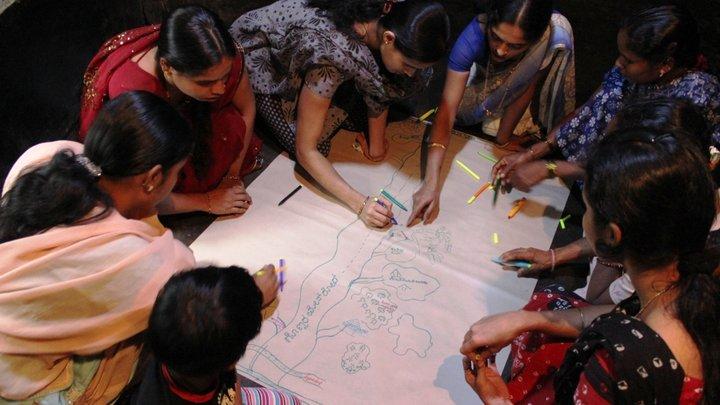Blog Gender-responsive participatory research on Native Fruit Trees in India

Read how Bioversity International and partners are doing gender-responsive participatory research in the India via this post on the Landscapes for People, Food and Nature blog.
“For the first time in our village, women of different ethnic and caste groups decided to form a women’s group called Matrabhoomi (Mothers’ land) and started producing kokum juice concentrate. We managed with great success, as the first batch of 350 liters was well received by shopkeepers as a natural product of high quality. Throughout the process we learned a lot about various Native Fruit Trees (NFTs) available in our village and surrounding forests, their abundance, threat status and to some extent how to manage them sustainably,” said Mrs Nagaveni, leader of the women’s group from Kalagadde-Kanchigadde village.
Kalagadde-Kanchigadde village is located in the remote forest area of the central Western Ghats, where more than 75 percent of the land is under forest cover. Farming, agricultural labouring and gathering of forest resources are the primary livelihood activities of villagers. Many marginalized socio-religious and tribal communities, including Siddis and Khare Vokkaligs, live there below poverty line.
Read the full post on the Landscapes for People, Food and Nature blog by Hugo Lamers, Marlène Elias, Narasimha Hegde
